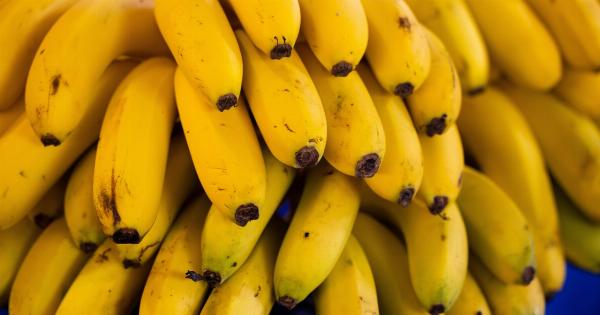Potassium is a vital mineral and electrolyte that is essential for various bodily functions. It is an essential nutrient that our bodies cannot produce on their own, so we must obtain it through our diet.
Potassium plays a crucial role in maintaining overall health and well-being. This mineral is found in various foods, including fruits, vegetables, legumes, and whole grains.
Importance of Potassium
Potassium is involved in many important functions within the body, making it essential for our overall health. Here are some reasons why we need potassium:.
1. Regulates Fluid Balance
Potassium helps maintain the balance of fluids in our body. It works in conjunction with sodium to regulate water balance and prevent dehydration.
Adequate potassium intake helps prevent excessive fluid retention or loss, promoting healthy hydration levels.
2. Supports Heart Health
Potassium is essential for maintaining a healthy heart. It plays a crucial role in regulating the electrical activity of the heart, ensuring proper heartbeat rhythm.
Adequate levels of potassium can help lower blood pressure and reduce the risk of heart disease and stroke.
3. Muscle Function
Potassium is necessary for proper muscle function. It helps transmit nerve signals to the muscles, allowing them to contract and relax efficiently. Adequate potassium levels can prevent muscle cramps, spasms, and overall muscle weakness.
4. Bone Health
Potassium is involved in improving bone health and reducing the risk of osteoporosis. It helps neutralize acids that can leach calcium from the bones, promoting proper bone density and strength.
5. Kidney Function
Our kidneys play a vital role in filtering waste materials and maintaining fluid balance. Potassium helps support proper kidney function by ensuring adequate urine production and waste removal. It can also help prevent the formation of kidney stones.
6. Nervous System
Potassium is essential for the proper functioning of the nervous system. It helps maintain the electrical conductivity of the nerves, allowing them to transmit signals efficiently.
Adequate potassium levels can enhance cognitive function and promote better mental clarity.
7. Balances pH Levels
Potassium is an alkaline mineral that helps balance pH levels within the body. It helps neutralize excess acids, promoting a healthy acid-base balance.
Imbalances in pH levels can lead to various health issues, including digestive problems and muscle weakness.
8. Reduces Risk of Stroke
Studies have shown that high potassium intake is associated with a reduced risk of stroke. Potassium helps relax blood vessels, lowering blood pressure levels and reducing strain on the cardiovascular system.
Lowering blood pressure is crucial in preventing strokes.
9. Improves Digestive Health
Consuming an adequate amount of potassium can help improve digestive health. It aids in the smooth functioning of the digestive muscles, ensuring proper digestion and regular bowel movements.
Additionally, potassium-rich foods often contain dietary fiber, which is essential for maintaining a healthy digestive system.
10. Boosts Metabolism
Potassium plays a role in energy metabolism by assisting in the conversion of food into energy. It helps activate various enzymes that facilitate metabolic processes, ensuring our bodies can efficiently utilize nutrients for optimal energy production.
Best Sources of Potassium
Potassium is abundant in many nutritious foods. Here are some excellent sources of potassium:.
1. Bananas
One medium-sized banana contains around 400-450mg of potassium.
2. Sweet Potatoes
A medium-sized sweet potato provides approximately 450-500mg of potassium.
3. Spinach
A cup of cooked spinach offers around 800-900mg of potassium.
4. Avocado
A medium-sized avocado contains approximately 700-800mg of potassium.
5. White Beans
A cup of cooked white beans provides around 800-900mg of potassium.
6. Salmon
A 3-ounce serving of salmon offers approximately 400-450mg of potassium.
7. Yogurt
A cup of plain yogurt provides around 500-600mg of potassium.
8. Tomato
One medium-sized tomato contains approximately 290-330mg of potassium.
9. Oranges
A medium-sized orange provides around 230-250mg of potassium.
10. Coconut Water
A cup of coconut water offers approximately 600-700mg of potassium.
Conclusion
Potassium is an essential mineral that plays a vital role in various bodily functions. It helps regulate fluid balance, supports heart health, maintains proper muscle function, and improves bone health.
Additionally, potassium is important for kidney function, the nervous system, balanced pH levels, and reducing the risk of stroke. It also contributes to digestive health and boosts metabolism. Ensure you include potassium-rich foods in your diet to promote overall health and well-being.






























